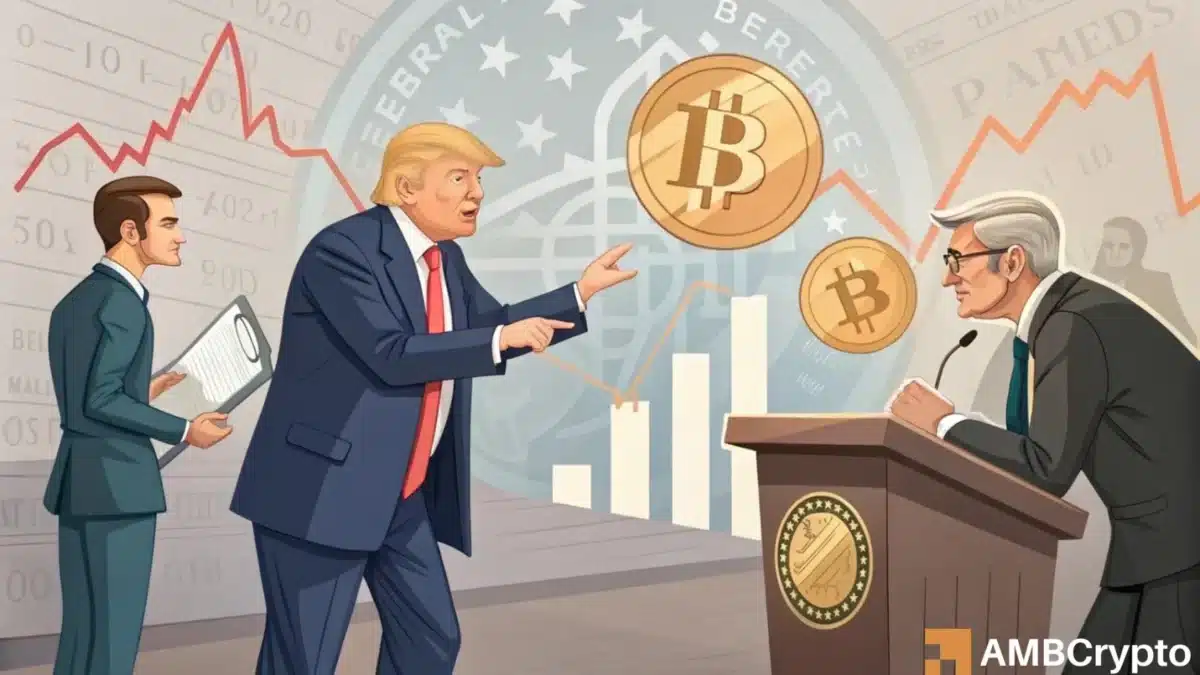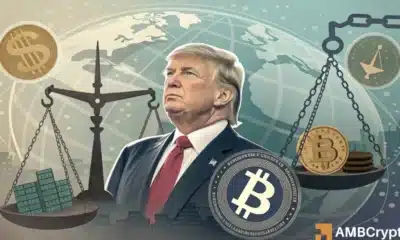Trump’s bold move on a Bitcoin Strategic Reserve could bypass the Fed – What’s his plan?

- Trump’s strategic Bitcoin reserve pledge fuels crypto community optimism.
- Federal Reserve’s cautious stance contrasts amid growing market uncertainty.
Following Donald Trump’s victory as the 47th President of the United States, the cryptocurrency community is optimistic about his earlier pledge to establish a strategic Bitcoin reserve.
During his address at the Bitcoin [BTC] 2024 conference in Nashville, Trump expressed his commitment to this initiative, fueling anticipation among crypto enthusiasts.
Will the Fed act as a hindrance in Trump’s Bitcoin Reserve vision?
However, Jerome Powell’s recent comments during a press conference emphasized that the Federal Reserve has no plans to engage in any government initiative to accumulate Bitcoin.
Powell had earlier stated,
“We’re not allowed to own Bitcoin. But the Federal Reserve Act says what we can own and we’re not looking for a law change.”
His statement, following the monetary policy meeting, created uncertainty in the market, causing BTC’s price to retreat from its recent highs.
Nevertheless, as of the latest update, BTC was trading at $98,703.53. This marked a 5.18% increase in the past 24 hours, according to CoinMarketCap.
Following Powell’s comments, the likelihood of a Bitcoin Strategic Reserve, according to the prediction market, Polymarket, has continued to decline.
Initially at a peak of 40% on the 18th of December, it has since dropped to 32%, reflecting a reduced probability.
Alongside this, the total market value of cryptocurrencies has also seen a significant decrease, losing approximately 7.5%, further indicating the market’s uncertainty.
What to expect?
Thus, while the Federal Reserve maintains significant independence in monetary policy, it does not hold veto power over the creation of a Bitcoin Strategic Reserve (BSR).
So, if the Trump administration were to pursue this initiative, the most efficient approach would likely involve issuing an executive order upon taking office, directing the U.S. Treasury Department to utilize the Exchange Stabilization Fund (ESF) for direct BTC purchases.
In conclusion, whether through executive action or legislative support, the establishment of a strategic Bitcoin reserve appears to require leadership from the Treasury Department rather than the Federal Reserve.






